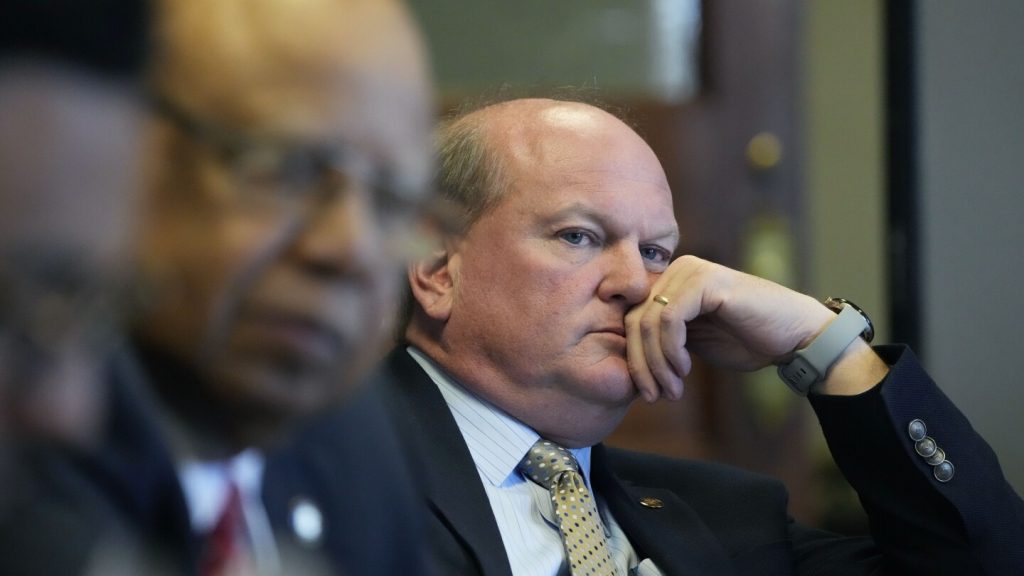In Mississippi, legislators are working to restore voting rights to individuals with felony convictions. This comes after a Senate leader killed a broader bill that would have restored suffrage to many more people with criminal records. Currently, in Mississippi, individuals convicted of certain crimes lose their right to vote unless they receive a pardon from the governor or obtain approval from two-thirds of the House and Senate. This piecemeal approach to restoring voting rights reflects the state’s history of disenfranchising crimes, which were originally created during the Jim Crow era to target Black individuals.
Republican Rep. Kevin Horan expressed his frustration with the current system, stating that individuals who have paid their debt to society and are law-abiding citizens should have the right to vote. Despite the flaws in the process, lawmakers are making efforts to restore suffrage to select individuals. During a recent hearing, lawmakers passed a combined 32 bills aimed at restoring voting rights to specific individuals who have faced difficulties in regaining this privilege. Mississippi is one of the 26 states that strip voting rights from individuals with felony convictions, according to the Brennan Center for Justice.
Under the Mississippi Constitution, individuals lose their right to vote for 10 specific felonies, including bribery, theft, and arson. The list of disenfranchising crimes was expanded to 22 offenses, including timber larceny and carjacking, by a former attorney general. Over the years, some crimes have been removed from the list, such as burglary in 1950, while others, like murder and rape, were added in 1968. Two recent lawsuits have challenged Mississippi’s felony disenfranchisement policy, but the courts have sided with the state, stating that changes to the list of disenfranchising crimes have addressed any discriminatory issues.
In March, the Republican-controlled Mississippi House passed a bill that would have automatically restored voting rights to individuals convicted of certain nonviolent offenses. However, the bill was killed by the Senate Constitution Committee Chairwoman Angela Hill, a Republican from Picayune. Republican lawmakers have stated that they will only consider individual suffrage bills for those who committed nonviolent offenses and have completed their sentences for at least five years. Democratic Rep. Zakiya Summers of Jackson criticized the failure of the larger bill and emphasized the need to pass legislation that fully restores voting rights to all disenfranchised individuals, regardless of their convictions.


